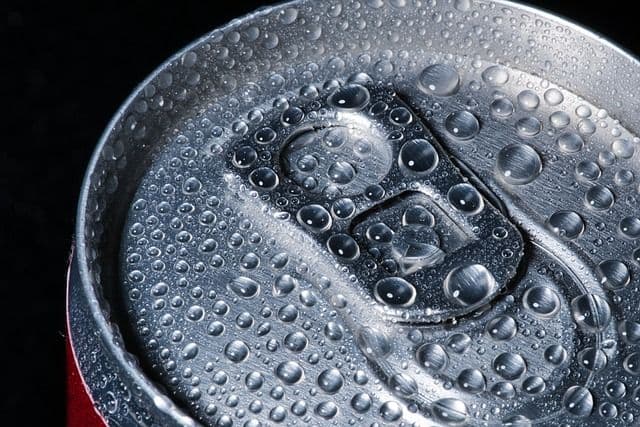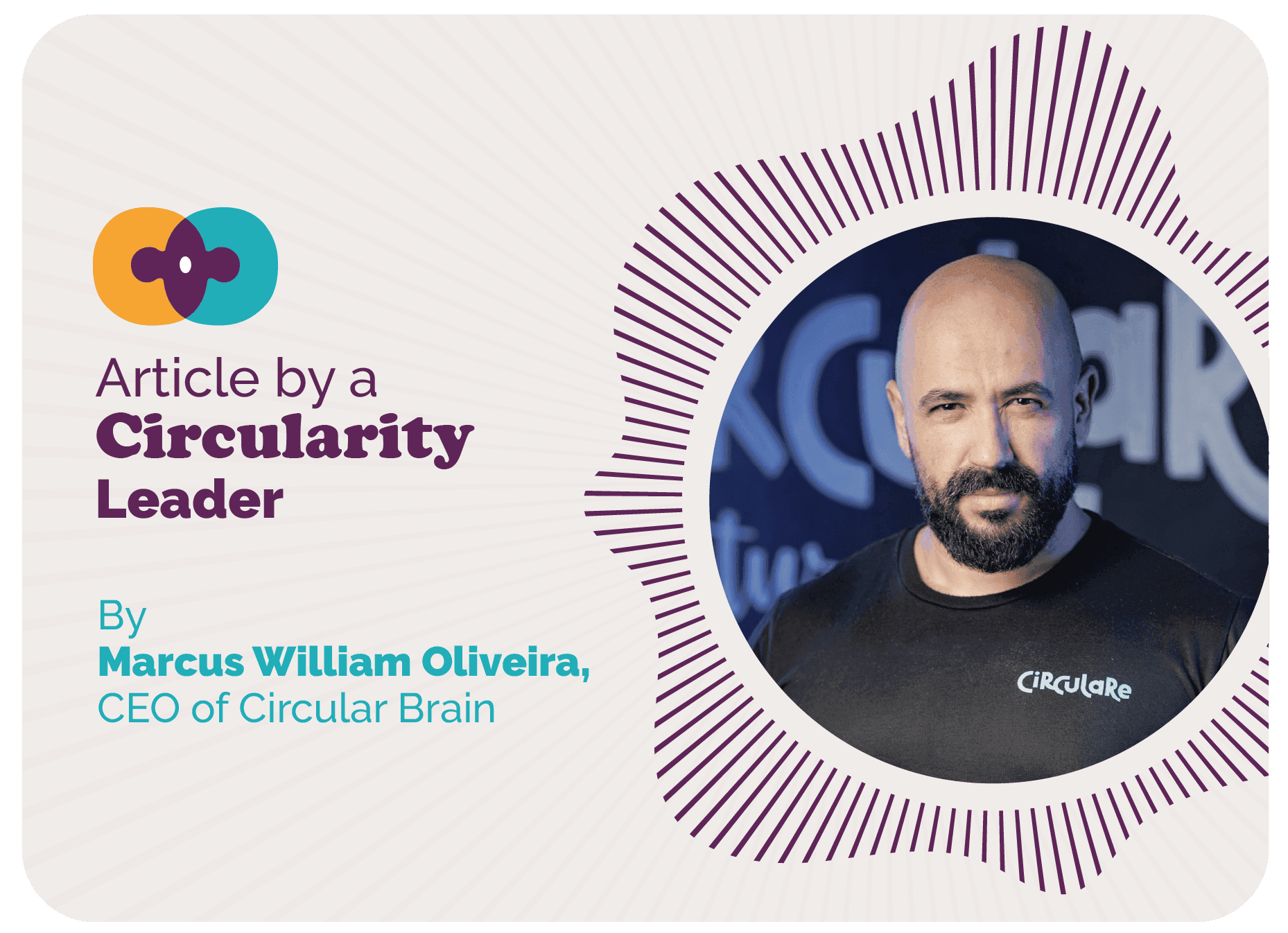
31/10/2023
Aluminum and Circular Economy: Successes and Challenges
By Arlene Carvalho, from Circular Movement
Have you ever wondered where the aluminum cans you discard come from and where they go? That's right, those soda cans, beer cans, tea cans, and even water cans - that we consume in our daily lives? On a global scale, these cans play a significant role in the aluminum industry, accounting for a substantial portion of the sales of this metal. In Brazil, for example, a quarter of all aluminum sold in the country is represented by them, totaling about 400 billion units. These figures come from the Brazilian Association of Aluminum Can Manufacturers (Abralatas) and reveal that, on average, each Brazilian used 153 cans last year.
Now, returning to the initial question, the answer is clear: the vast majority are recycled. In 2022, Brazil achieved a remarkable feat, becoming the only country in the world to recycle nearly 100% of aluminum cans for beverages. This milestone aligns with the National Solid Waste Policy (PNRS) and represents an opportunity for approximately 800 thousand families of recyclers in the country - still according to Abralatas.
The successful recycling rate in Brazil is an inspiring example for the world, highlighting the importance of collaboration between various sectors, such as industry, government, consumers, and recycling cooperatives.

The life cycle of an aluminum can is around 60 days, which makes it easy to recycle. Image: Pixabay
On a global perspective, countries like Japan, with a rate of 92.6%, and Argentina, with 91.1%, also stand out in aluminum can recycling. In the worldwide context, Europe maintains a respectable average of 66.7% can recycling, and the United States is close behind, with 65.1%, according to data compiled by local associations and disclosed by the Brazilian Aluminum Association (Abal). It is interesting to note that Italy, according to the National Consortium of Aluminum Containers (CIAL), achieved an approximate 92% recycling rate for aluminum cans in 2022.
Aluminum is obtained from bauxite - an ore extracted, in Brazil, mainly in reserves in the North and Southeast. All this global mobilization contributes to conserving bauxite reserves, reducing socio-environmental impacts, and decreasing energy consumption.
Possibilities of Aluminum
Let's start with a little exercise, shall we? Look around you and count how many objects are made of aluminum or that you know contain this metal in their composition. Let's exclude aluminum cans, alright? Have you ever thought about that?
Aluminum is an integral part of many products - from medicine packaging and yogurt lids to aerosols, beauty products, electronics, and even in coatings and components of vehicle engines, aircraft, and household appliances. So why do we only mention cans as this great example of success when we talk about aluminum?

Aluminum is in many everyday items, even our cell phones. Image: Pixabay
Eunice Lima, Director of Communication and Government Relations for Novelis South America (a global leader in aluminum rolling and recycling), explains that there are many factors, but some stand out more than others. "Since its creation, the aluminum can was designed to circulate, to be recycled. In addition, from the moment it is collected, recycled, and put back on the market, the can accumulates a life cycle of about 60 days. This is a short time compared to the aluminum in a door, for example. This one has a useful life of about 50 years or more," she explains.
The versatility of aluminum is remarkable, and its lifespan can vary significantly depending on its application, thanks to its exceptional characteristics. In addition to its lightness and soft texture, aluminum is also notably resistant. With excellent electrical conductivity and great corrosion resistance, aluminum finds a wide range of applications that go far beyond those mentioned earlier.

Vehicles also contain aluminum, as do pans, and even various packaging. Image: Pixabay
"It is a noble material, of high added value, and it does not rust. When recycled, aluminum reduces electricity consumption and greenhouse gas emissions by 95%. Europe and Argentina also have high recycling rates of the material, but there are places where this is still being worked on, like the United States and Chile," Lima ponders. "When we produce something already thinking about what will be done at the end of its life, we collaborate with a whole chain that lives and profits from it," she continues.
The Circular Economy, based on the premise of considering the entire life cycle of a material, is fundamental in this context. It covers everything from the design phase, the so-called "design for recyclability," to production and disposal, ensuring that no waste is simply generated or discarded without consideration.

Recycling is immensely important for the circularity of any material, including aluminum, but it is only ONE of the steps. Image: Reproduction/Circular Movement
Another aspect to consider is that when it comes to recycling, it is important to recognize the difference between single-material products and those composed of multiple materials. "While recycling mixed materials can be more challenging and costly, recycling pure aluminum is highly efficient and beneficial both environmentally and economically. Recycling is viable because there are also buyers. And cans are our biggest example currently," reports the director of Novelis.

The cans are made exclusively from aluminum, something that facilitates the recycling process. Image: Pixabay
The collection of aluminum relies on a wide network of collectors who play an essential role in this process. According to Abralatas, approximately 800 thousand families earn income through recycling, highlighting the positive impact of this sector on the economy. In addition, companies like Novelis have their own collection centers and collaborate with partners in the purchase of recyclable materials. As Lima emphasizes, "this circularity network is vital to keep the flow of recycled materials going worldwide."
However, it is crucial to highlight that many collectors still operate informally, living in very difficult conditions. This underscores the urgent need to increasingly recognize, value, and formalize the profession of collector, a responsibility shared by societies, industries, and governments.

Depending on the product it is used in, aluminum can last 50 years or more. Image: Pixabay
Brazil's Recycling Incentive Law
According to the spokesperson for Novelis, the company also has the Recycling League project - which aims, among other things, to strengthen the role of cooperatives as sustainable enterprises, as well as to value cooperative members as environmental agents and agents of transformation. "We will continue to invest in the awareness, professionalization, and recognition of cooperatives and cooperative members. We buy from partners, and they are extremely valuable," she concludes.
In a webinar held in June of this year by the Circular Movement, the National Secretary of Urban Environment and Environmental Quality of the Ministry of the Environment, Adalberto Maluf, announced promising actions. Among them, the launch of the first ProRecicle call for proposals, in September 2023, which will allow the registration of recycling projects to receive sponsorship from the private sector. In addition, Maluf informed that the regulation of the Payment for Environmental Services Law is underway, which will guarantee remuneration to collectors and cooperatives based on the services provided, no longer based on the quantity of recycled waste.

Ismaela Silva, from Movimento Circular, and the National Secretary of Urban Environment and Environmental Quality of the Ministry of the Environment, Adalberto Maluf, in a webinar held in June 2023. Image: Reproduction/Movimento Circular
Via email, the Ministry of the Environment (MMA) clarified that, regarding ProRecicle, the Monitoring Commission provided for in Law No. 14,260 has been installed, but the need for a presidential decree to regulate the legislation was identified, indicating that the call for proposals has not yet been launched and there is no forecast.
Regarding the Payment for Environmental Services Law, the MMA is preparing a regulatory decree, providing for the inclusion of collectors among the beneficiaries. In addition, Bill No. 2,524/22, currently under consideration in Congress, proposes changes to the legislation to include payment for environmental services, allowing collectors to be remunerated both for collection and sorting as well as for the sale of recycled material.
In summary, the Ministry added that the regulation and formalization of recyclable collectors is a priority for the Federal Government, which on February 13 of this year issued two decrees on the subject. Decree No. 11,413 ensured the prioritization of collectors for access to reverse logistics credits and the maintenance of investment programs in cooperatives. Decree No. 11,414 created the Diogo de Sant'Ana Pro-Collectors Program for Popular Recycling, along with the Interministerial Committee for Socioeconomic Inclusion of Collectors of Reusable and Recyclable Materials.
Finally, the MMA highlighted an increase in the import tax rate for waste to preserve the value of materials traded by cooperatives. The Federal Government is also working on a proposal for tax exemption, including PIS/PASEP and Social Security Contribution, in favor of collector cooperatives.

O alumínio também é usado em revestimentos de construções. Imagem: Pixabay
The journey of aluminum, from the cans we use daily to the most sophisticated products, is a remarkable example of the Circular Economy. The ability to recycle aluminum efficiently, preserving natural resources and reducing environmental impact, is a success that should be celebrated.
However, we must not forget the crucial role played by collectors, many of whom operate on the margins of society. Recognizing, valuing, and formalizing the profession of collector is essential to sustain and strengthen this circularity network.
Collaboration between various sectors, including industry, government, and society, is the key to ensuring that the journey of aluminum in the Circular Economy is truly sustainable and inclusive.
What is the circular economy?
The Circular Economy proposes a new look at our way of producing, consuming, and disposing, in order to optimize the planet's resources and generate less and less waste. In other words, an alternative model to the Linear Economy - to extract, produce, use and discard - which has proved to be increasingly unsustainable throughout history. In the Circular Economy, the goal is to keep materials in circulation longer by reusing them until nothing becomes waste! For this model to become a reality, we all have a role to play. It is a true collaborative circle, which feeds itself, and helps to regenerate the planet and our relations.
Learn about Circular Economy
If you are interested in learning more about this topic, visit Circular Academy, the first free Latin American course on circular economy aimed at general audiences. All of us, in partnership and collaboration, can make a difference in building a more circular planet.

